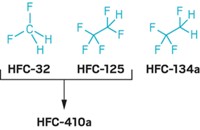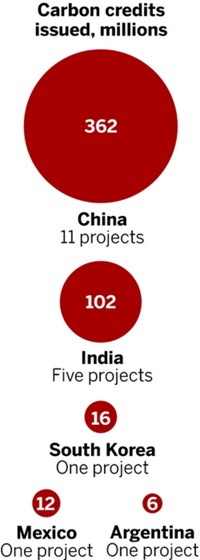Advertisement
Grab your lab coat. Let's get started
Welcome!
Welcome!
Create an account below to get 6 C&EN articles per month, receive newsletters and more - all free.
It seems this is your first time logging in online. Please enter the following information to continue.
As an ACS member you automatically get access to this site. All we need is few more details to create your reading experience.
Not you? Sign in with a different account.
Not you? Sign in with a different account.
ERROR 1
ERROR 1
ERROR 2
ERROR 2
ERROR 2
ERROR 2
ERROR 2
Password and Confirm password must match.
If you have an ACS member number, please enter it here so we can link this account to your membership. (optional)
ERROR 2
ACS values your privacy. By submitting your information, you are gaining access to C&EN and subscribing to our weekly newsletter. We use the information you provide to make your reading experience better, and we will never sell your data to third party members.
Environment
Greenhouse Gases: EU Ban Looms On Emissions Credits From Carbon Reduction Schemes
by Marc S. Reisch
January 31, 2011
| A version of this story appeared in
Volume 89, Issue 5
A committee of European Union countries approved a ban on carbon emissions offsets created in China and elsewhere. The move follows criticism that the offsets are based on projects in developing countries that unnecessarily produce greenhouse gases only so that their creators could be paid to destroy them.
The European Parliament is expected to approve the ban to begin in 2013. Certified under the United Nations’ Clean Development Mechanism, the credits cover industrial projects that destroy two greenhouse gases: fluorocarbon HFC-23, a by-product of the production of refrigerant HCFC-22, and nitrous oxide, a by-product of the production of nylon precursor adipic acid.
Utilities in developed countries can buy the credits to offset their carbon emissions and to meet carbon reduction goals set under the Kyoto protocol. According to the European Commission, the EU’s administrative branch, just 23 industrial gas projects account for two-thirds of all credits.
Fionnuala Walravens, campaign leader of the London-based nongovernmental group Environmental Investigation Agency, calls the ban “historic” and says that the EU’s action will eliminate the “fraudulent and problematic” industrial gas credits in the world’s biggest carbon market. The UN is also reviewing the credits (C&EN, Aug. 30, 2010, page 8).
Stig Schjølset, a senior analyst in Oslo, Norway, with consulting firm Point Carbon, says that the ban will remove some 400 million metric tons of credits trading in Europe between 2013 and 2020. Because of the impending ban, prices for remaining credits may be somewhat higher, but credits available from other developing country projects will likely exceed demand.




Join the conversation
Contact the reporter
Submit a Letter to the Editor for publication
Engage with us on Twitter